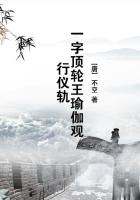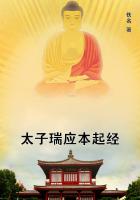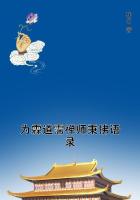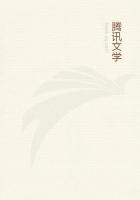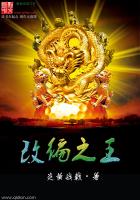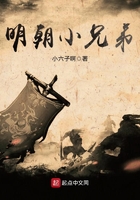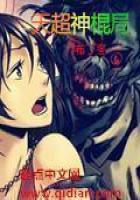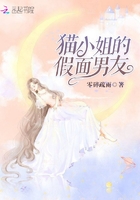I told him some things to say, and one of them was that the honesty of a man without a price prevented the necessity of anything being paid to find me. The other was that you located my people yourself, and at once sent me to them against my wishes. I was determined he should know that. So Uncle Henry missed his revenge on you.
He evidently thought he not only would hurt you by breaking up your home and separating us, but also he would get a reward for his work. He wrote some untrue things about you, and I wish he hadn't, for grandfather can think of enough himself. But I will soon change that. Please, please take good care of all my things, my flowers and vines, and most of all tell Belshazzar to protect you with his life. And you be very good to my dear, dear lover. I will write again soon, Ruth."
When the Harvester had studied the letter until he could repeat it backward, he went to the cabin and answered it. Then he sent subscriptions for two of Philadelphia's big dailies, and harvested ginseng from dawn until black darkness. Never was such a crop grown in America. The beds had been made in the original home of the plant, so that it throve under perfectly natural conditions in the forest, but here and there branches had been thinned above, and nature helped by science below.
This resulted in thick, pulpy roots of astonishing size and weight. As the Harvester lifted them he bent the tops and buried part of the seed for another crop. For weeks he worked over the bed. Then the last load went down the hill to the dry-house and the helpers were paid.
Next the fall work was finished. Fuel and food were stored for winter, while the cold crept from the lake, swept down the hill and surrounded the cabin.
The Harvester finished long days in the dry-house and store-room, and after supper he sat by the fire reading over the Girl's letters, carving on her candlesticks, or in the work room, bending above the boards he was shaving and polishing for a gift he had planned for her Christmas. The Careys had him in their home for Thanksgiving. He told them all about sending the Girl away himself, read them some of her letters, and they talked with perfect confidence of how soon she would come home. The Harvester tried to think confidently, but as the days went by the letters became fewer, always with the excuse that there was no time to write, but with loving assurance that she was thinking of him and would do better soon.
However they came often enough that he had something new to tell his friends so that they did not suspect that waiting was a trial to him. A few days after Thanksgiving the gift that he had planned was finished. It was a big, burl-maple box, designed after the hope chests that he saw advertised in magazines. The wood was rare, cut in heavy slabs, polished inside and out, dove-tailed corners with ornate brass bindings, hinges and lock, and hand-carved feet. On the inside of the lid cut on a brass plate was the inscription, "Ruth Langston, Christmas of Nineteen Hundred and Ten. David."
Then he began packing the chest. He put in the finished candlesticks and a box of candleberry dips he had made of delightfully spiced wax, coloured pale green. He ordered the doll weeks before from the largest store in Onabasha, and the dealer brought on several that he might make a selection. He chose a large baby doll almost life size, and sent it to the dress-****** department to be completely and exquisitely clothed. Long before the day he was picking kernels to glaze from nuts, drying corn to pop, and planning candies to be made of maple sugar. When he figured it was time to start the, box, he worked carefully, filling spaces with chestnut and hazel burs, and finishing the tops of boxes with gaudy red and yellow leaves he had kept in their original brightness by packing them in sand. He put in scarlet berries of mountain ash and long twining sprays of yellow and red bitter-sweet berries, for her room. Then he carefully covered the chest with cloth, packed it in an outside box, and sent it to the Girl by express. As he came from the train shed, where he had helped with loading, he met Henry Jameson. Instantly the long arm of the Harvester shot out, and in a grip that could not be broken he caught the man by the back of the neck and proceeded to dangle him. As he did so he roared with laughter.
"Dear Uncle Henry!" he cried. "How did you feel when you got your letter from Philadelphia? Wasn't it a crime that an honest man, which same refers to me, beat you? Didn't you gnash your teeth when you learned that instead of separating me from my wife I had found her people and sent her to them myself? Didn't it rend your soul to miss your little revenge and fail to get the good, fat reward you confidently expected? Ho!
Ho! Thus are lofty souls downcast. I pity you, Henry Jameson, but not so much that I won't break your back if you meddle in my affairs again, and I am taking this opportunity to tell you so. Here you go out of my life, for if you appear in it once more I will finish you like a copperhead. Understand?"
With a last shake the Harvester dropped him, and went into the express office, where several men had watched the proceedings.
"Been dipping in your affairs, has he?" asked the expressman.
"Trying it," laughed the Harvester.
"Well he is just moving to Idaho, and you probably won't be bothered with him any more."
"Good news!" said the Harvester. He felt much relieved as he went back to Betsy and drove to Medicine Woods.
The Careys had invited him, but he chose to spend Christmas alone. He had finished breakfast when the telephone bell rang, and the expressman told him there was a package for him from Philadelphia. The Harvester mounted Betsy and rode to the city at once.
The package was so very small he slipped it into his pocket, and went to the doctor's to say Merry Christmas!

